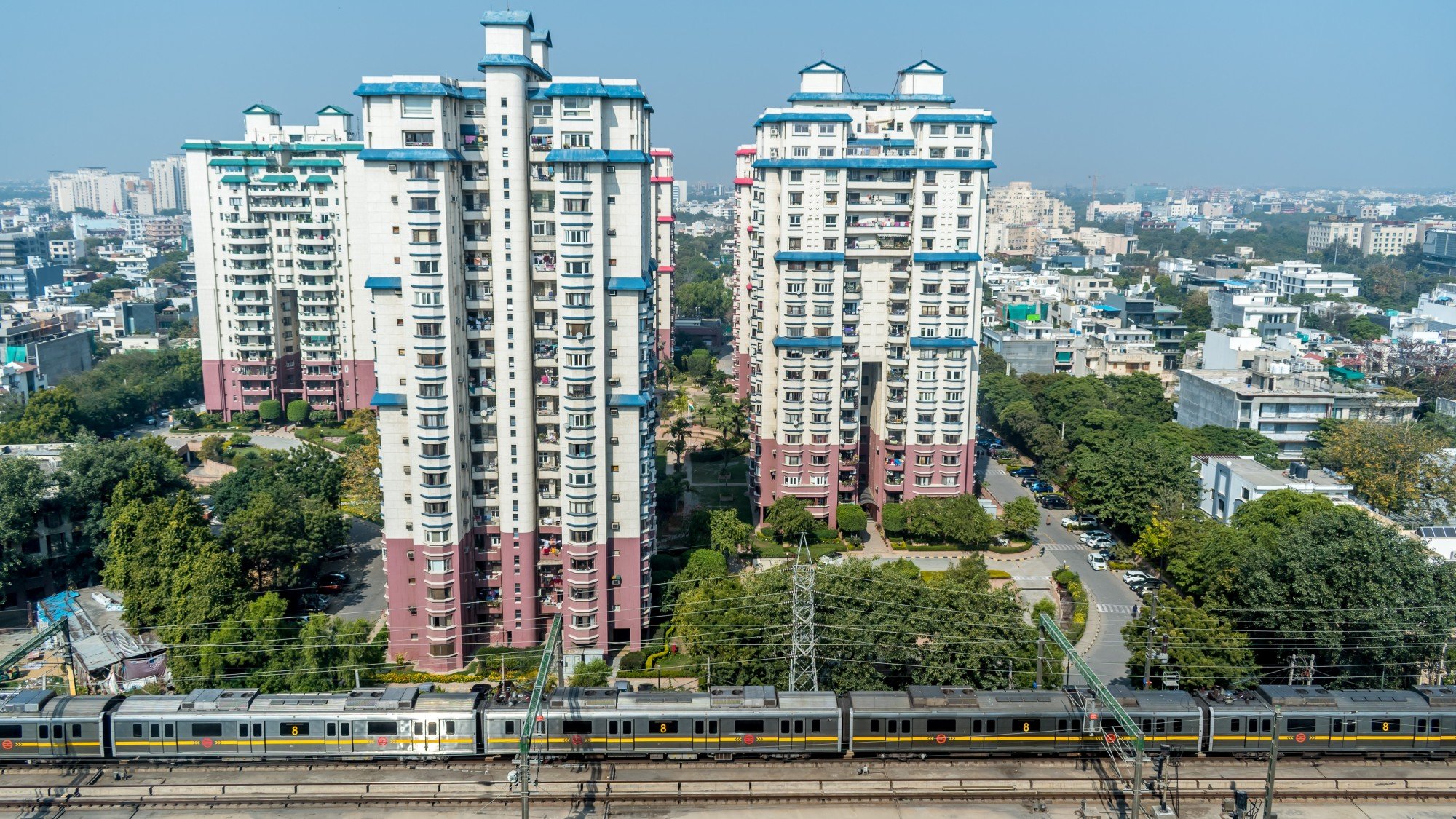
Indian millennials unlock housing recovery as many seek ‘security’ of ownership
- As millennials and overseas Indians rush to buy homes, India’s once-beleaguered urban housing market is seeing a resurgence after years of stagnation and unsold inventory
- Stricter laws and oversight around dubious developers and safety standards have also injected fresh life into the property market
“The job market was shaky, but I took the risk as prices were at rock bottom,” said Singh about his purchase in 2021, adding that the flexibility of working from home enhanced the appeal of home ownership.

The turnabout has been significant, especially in the country’s national capital region – the parts surrounding New Delhi – where pockets such as Noida were pockmarked by multiple housing projects left uncompleted by dubious developers.
Tens of thousands of homebuyers were left high and dry in a multibillion-dollar industry when some developers stopped midway, declaring bankruptcy after accepting the bulk of construction-linked payments, to avoid finishing costs that need the most funds.
Even the lucky few who got possession typically faced lengthy delays stretching up to a decade as developers would often divert payments to bankroll multiple other housing projects. For years, India’s property market was also a conduit for unaccounted money, with scores of fly-by-night operators and only a handful of established firms.
The federal law protects homebuyers by mandating project certificates and ensuring depositors’ money is used for earmarked developments. But state governments have an equal say in the regulation and the provisions have started to be introduced only recently.
Restoring faith
These measures have started to infuse fresh life into the property market. India’s home inventory across the top seven cities dropped to a five-year low of 20 months in the first quarter of 2023, compared to a peak of 55 months in the fourth quarter of 2020, says research group Anarock.
“The inventory drop indicates the altering preferences in terms of buying versus renting. Earlier, [some] millennials preferred to rent a home over buying,” said Anuj Puri, chairman of Anarock Group. “They now prefer to own a home because it offers a sense of security.”

India’s IT hubs – the southern cities of Hyderabad and Bangalore – as well as the national capital region that has seen an upsurge in the number of premium properties by reputed builders in the last year, have emerged as top picks, according to Anarock.
Hong Kong-based Ganesh Prasad wanted to return to his extended family in Bangalore, especially as his father was ailing. He bought a 1,795 sq ft house by the Deccan group after paying a deposit in late 2021.
“I wanted my own house and did not want to live in a rented house,” he said.
People today have the desire and the money to buy real estate. Customers want security for their money
Many established players are reaping the gains of the demand upsurge. When major Delhi-based developer DLF introduced a luxury housing project called The Arbour in Gurgaon last month, the houses – priced around 70 million Indian rupees (US$853,000) – were sold out in three days, before the formal launch.
“People today have the desire and the money to buy real estate. Customers want security for their money,” said Aakash Ohri, group executive director and chief business officer of DLF. Demand had picked up across all categories of housing, he added.
The upward trajectory had spread from southern and western India to the north, corresponding with developers’ track records and liquidity, said Abhilash Pillai, partner at law firm Cyril Amarchand Mangaldas.
Overall, customers were now more aware that they had RERA available to ensure they get what they paid for, he said. Developers had to contend with red tape as each project needed 18-20 approvals, resulting in delays, “but I would say there is a 50 per cent improvement [in the approval process] from the pre-RERA regime”, he added.
But some consumer woes linger.
Rahul Gossain, who booked an apartment in 2013 at Dwarka Expressway close to Delhi’s airport, ran from pillar to post before securing a refund order under RERA after two years of litigation over a delayed project by Pareena Infrastructure and is still awaiting a final order.
However, such bad experiences are on the decline. Over the last three to four years, many small-time and unscrupulous developers had consolidated or vanished and the sector had become more structured and organised, said Heena Chheda, partner at Economic Laws Practice.
This development is fuelling optimism that Indian real estate will remain resilient despite a global downturn.
“With a yearly property price appreciation of 6-9 per cent, the industry is an attractive investment option and is becoming increasingly so for millennials,” said Neeraj Bansal, a partner in KPMG India.

Brisker purchases stemmed from a rise in India’s per capita income by 32 per cent in the last six years, he said. But property executives say the market faces a litmus test as higher home-loan rates have started pinching price-conscious middle-class consumers, even as sale volumes remain the same.
Gaurav Kohli, a property consultant with Temple Homes brokerage who bought an upscale Gurgaon apartment called IREO SkyOn before the onset of the Covid-19 pandemic in 2019, said he received an offer that was 30 per cent higher than what he paid.
But prices had most likely plateaued and might not go up for some time, he added.


